
John Benson Sebastian (born March 17, 1944) is an American singer, songwriter and musician who founded the rock band the Lovin' Spoonful. He made an impromptu appearance at the Woodstock festival in 1969 and scored a U.S. No. 1 hit in 1976 with "Welcome Back."

Zalman Yanovsky was a Canadian folk-rock musician. Born in Toronto, he was the son of political cartoonist Avrom Yanovsky and teacher Nechama Yanovsky, who died in 1958. He played lead guitar and sang for the Lovin' Spoonful, a rock band which he founded with John Sebastian in 1964. He was inducted into the Canadian Music Hall of Fame in 1996. He was also inducted into the Rock and Roll Hall of Fame in 2000 as a member of the Lovin’ Spoonful. He was married to actress Jackie Burroughs, with whom he had one daughter, Zoe.

The Lovin' Spoonful is an American folk-rock band formed in Greenwich Village, New York City, in 1964. The band was among the most popular groups in the United States for a short period in the mid-1960s and their music and image influenced many of the contemporary rock acts of their era. Beginning in July 1965 with their debut single "Do You Believe in Magic", the band had seven consecutive singles reach the Top Ten of the U.S. charts in the eighteen months that followed, including the number-two hits "Daydream" and "Did You Ever Have to Make Up Your Mind?" and the chart-topping "Summer in the City".

Joseph Campbell Butler is an American drummer, singer and actor. He is a member of the Lovin' Spoonful, who had seven top 10 hits between 1965 and 1966. Butler would replace the bands original drummer Jan Carl and would occasionally sing lead vocals. After John Sebastian left the band in 1968 he took over full lead vocal duties. He would sing fully on their album Revelation: Revolution '69. After the album the band would break up. In 1991 the band would resume touring were Butler would tour singing and playing autoharp.

Daydream is the second album by the Lovin' Spoonful, released in 1966. It features two hits, "Daydream", which reached No. 2 in the U.S. Billboard Top 40 charts, and "You Didn't Have to Be So Nice".

"Summer in the City" is a song by the American folk-rock band the Lovin' Spoonful. Written by John Sebastian, Mark Sebastian and Steve Boone, the song was released as a non-album single in July 1966 and was included on the album Hums of the Lovin' Spoonful later that year. The single was the Lovin' Spoonful's fifth to break the top ten in the United States and their only to reach number one. A departure from the band's lighter sound, the recording features a harder rock style. The lyrics differ from most songs about the summer by lamenting the heat, contrasting the unpleasant warmth and noise of the daytime with the relief offered by the cool night, which allows for the nightlife to begin.

Hums of the Lovin' Spoonful is the third studio album by the American folk rock band the Lovin' Spoonful. It was released in November 1966 by Kama Sutra Records. It peaked at No. 14 on the Billboard Pop Albums chart.
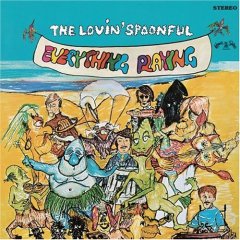
Everything Playing is the fourth studio album and sixth overall by the Lovin' Spoonful, released in 1967.
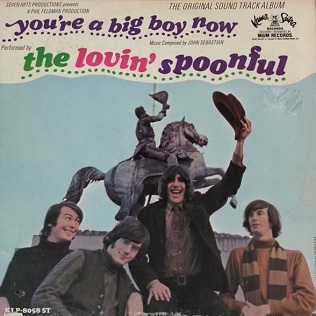
You're a Big Boy Now is a soundtrack album by the Lovin' Spoonful, released in 1967, containing music from the Francis Ford Coppola film of the same name. Composed entirely by Spoonful member John Sebastian, it contains several songs performed by the band, as well as instrumental music from the film score.

Erik Jacobsen is an American record producer, song publisher and artist manager. He is best known for his work in the 1960s with Tim Hardin, the Lovin' Spoonful, the Charlatans, and Sopwith Camel, and later with Norman Greenbaum, Tazmanian Devils and Chris Isaak. Retiring after forty years in the studio, he began working in video production. His first major video project was an auto-biographical webside, All About Erik, launched in 2019. His next, Erik's Travels, features his prize-winning travel documentaries, and was launched in 2024.
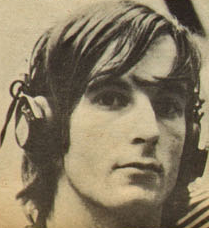
Steve Boone is an American bass guitarist and music producer, best-known as a member of the American folk-rock group the Lovin' Spoonful. Steve co-wrote two of the groups' biggest hits, "You Didn't Have to Be So Nice" and "Summer in the City".

The Lovin' Spoonful Anthology is a compilation album by the folk rock group the Lovin' Spoonful, released in 1990.

The Best of the Lovin' Spoonful is a 1967 compilation album by the Lovin' Spoonful featuring hits and other tracks from their first three albums. It charted the highest of the group's career, hitting number three on the Billboard Top LPs chart.
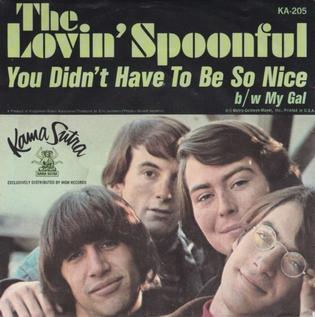
"You Didn't Have to Be So Nice" is a song by the American folk-rock band the Lovin' Spoonful. Written by John Sebastian and Steve Boone, it was issued on a non-album single in November 1965. The song was the Lovin' Spoonful's second-consecutive single to enter the top ten in the United States, peaking at number ten. It was later included on the band's second album, Daydream, released in March 1966.

"Daydream" is a song by the American folk-rock band the Lovin' Spoonful. Written by John Sebastian, it was issued as a single in February 1966 and was the title track of the band's second album, Daydream, released the following month. The song was the Lovin' Spoonful's third consecutive single to enter the top ten in the United States, and it was their best performing to that point, reaching number two. The single's European release coincided with a British and Swedish promotional tour, leading the song to be the band's first major hit outside North America. It topped sales charts in Canada and Sweden, and it was ultimately the band's most successful record in the United Kingdom, where it reached number two.

"Darling Be Home Soon" is a song written by John Sebastian of the Lovin' Spoonful for the soundtrack of the 1966 Francis Ford Coppola film You're a Big Boy Now. It appeared on the Lovin' Spoonful's 1967 soundtrack album You're a Big Boy Now. Sebastian performed his composition at Woodstock; it was the fourth song out of the five he performed at the 1969 music festival in White Lake, New York.

A Spoonful of Jazz is an album by saxophonist Bud Shank recorded in 1967 for the World Pacific label. The album features interpretations of tunes associated with The Lovin' Spoonful.

"Nashville Cats" is a song by the American folk-rock band the Lovin' Spoonful. Written by John Sebastian, the song appeared on the band's 1966 album Hums of the Lovin' Spoonful, and it was also issued on a single released the same day as the album. The single peaked at number eight on the Billboard Hot 100 chart, marking the seventh and final time the band reached the American Top Ten.

"Rain on the Roof" is a song by the American folk-rock band the Lovin' Spoonful. Written by John Sebastian, the song was released as a single in October 1966 and was included on the album Hums of the Lovin' Spoonful the following month. The song reached number ten on the Billboard Hot 100 chart, making it the Lovin' Spoonful's sixth-consecutive single to reach the top ten in the United States.
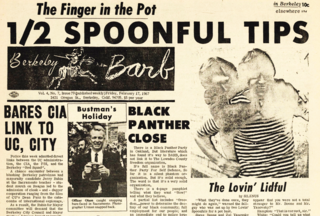
In May 1966, Zal Yanovsky and Steve Boone of the Lovin' Spoonful – an American folk-rock band then at the height of its success – were arrested in San Francisco, California, for possessing marijuana. Yanovsky, a Canadian by birth, expected that a conviction would lead to his deportation and a breakup of the band. To avoid this eventuality, the pair cooperated with law enforcement, revealing their drug source at a local party a week after the initial bust.





















